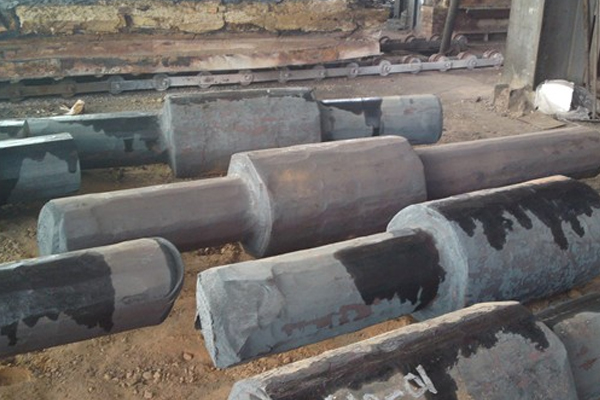Cooling and heating methods for stainless steel forgings
According to the different cooling speed, there are three cooling methods of stainless steel forgings: cooling in the air, cooling speed is faster; The cooling rate is slow in lime sand. In the furnace cooling, cooling speed is slowest.
1. Cooling in the air, stainless steel forgings after forging single or pile directly on the floor of the workshop cooling, but can not be placed on the wet ground or metal plate, also do not put in a place where there is draught, so as not to cool uneven or local rapid cooling caused by cracks.
2. Cool in dry ash and sand pit (box). The sand temperature of general steel parts should not be less than 500℃, and the thickness of surrounding ash and sand should not be less than 80mm.
3. Cooling in the furnace, stainless steel forgings after forging directly into the furnace cooling, steel furnace temperature should not be less than 600-650℃, furnace temperature and furnace stainless steel forgings temperature is similar. Because the cooling rate of stainless steel forgings can be controlled by furnace temperature adjustment, it is suitable for the cooling of high alloy steel, special alloy steel forgings and large stainless steel forgings after forging.
Stainless steel forgings induction surface heating there are two ways: continuous mobile and fixed, continuous movement method is a sensor or stainless steel forgings heating while moving immediately in the move closely followed by cooling quenching. And the fixed stainless steel forgings heating quenching surface in the inductor, inductor and stainless steel forgings no relative movement, to be heated to the temperature and then spray cooling or the stainless steel forgings into the cooling medium quenching.
Fixed heating is limited by the power of the equipment, and sometimes in order to heat the stainless steel forgings exceeding the power limit, and to reach a certain depth of hardened layer, the method of repeated heating or preheating to 600℃ is used.
The induction heating of stainless steel forgings using continuous mobile heating is more common, high-frequency quenching heating is usually fixed inductor and stainless steel forgings move. Medium and power frequency heating, often moved by inductor, stainless steel forgings can rotate when required. The inductor is arranged on the moving platform of the quenching machine tool.
Quenching temperature depends on the selection of power and moving speed, because the operation area of continuous moving heating is small, the application scope of stainless steel forgings is more extensive, so, at home and abroad in stainless steel forgings induction heating, generally adopt high power induction heating method.
